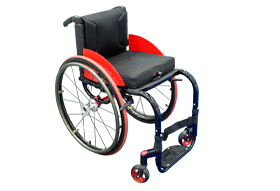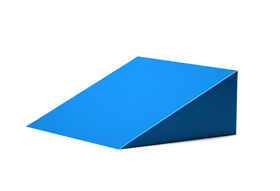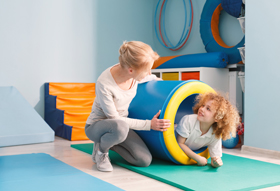
Foam for disabilities

Foam truly has unlimited potential for adults and children with disabilities. It is considered both a stimulating and safety-oriented material and therefore, in such settings, it has a range of applications.
Most commonly, foam is used as a support in wheelchairs, beds and chairs. As it can be cut to specific shapes and sizes and made in certain densities as per a user’s requirements, it is the most adaptable and versatile option. Standard wheelchair cushions and pressure cushions are commonly purchased in a memory foam form, giving disabled individuals relief from back and joint pain. Contouring to the body and offering pressure point relief, memory foam offers postural management to optimise both comfort and health.
For those who spend a lot of time sitting up in bed, polyurethane headboard pads are often purchased to prevent head and neck injuries, and to provide additional comfort. These can also be cut to size and shape, such as a Wedge/Triangular shape to aid in sitting up in bed. Offering tailored support to best meet comfort and support needs, foam is a fantastic customisable material that can accommodate a range of widths, lengths and shape requirements for those with complex seating needs.

With regards to safety, foam pads are frequently used to surround a bed or chair in case of a fall – particularly when safety rails aren’t available, for example. Folding polyurethane pads are popular for those who frequently travel and need to ensure their safety on the go. Medium-high density foam is popular and can be easily laminated or covered with specialist covers that are widely available online.
For children, it is difficult to ensure safety when they are keen to explore. For playrooms and other recreational activities, parents and carers often use foam pads to cover walls and floors in the event of a fall or bump. Foam floor pads also ensure that a child can comfortably lie on the floor if necessary and further roll or move around without risk of injury. Those with disabilities may also require toys that are softer in composition, meaning that foam shapes – such as cubes, triangles and rectangles – are a great option. These are available in a range of sizes and can be cut to specification if you have a particular idea in mind.

Naturally, foam usage for children and adults moves beyond safety. Sensory rooms are continuing to grow in popularity and offer unparalleled activity experiences in a safe and comfortable setting. Many are now choosing to implement sensory rooms at home, and often tend to source foam as a key material. Foam can be incorporated in a number of ways – many of which are similar to the above in terms of seating, wall/floor protection and toys – but it is the material makeup of foam that makes it an excellent sensory material.
Memory foam, for example, helps to strengthen the sensation of touch, enabling an individual to create shapes using various levels of pressure. Foam rollers – such as those commonly used in fitness settings – make a wonderful sensory toy for those interested in textures and surface sensations. Acoustic (or egg-crate foam) is another great type of foam for adults and children interested in repetitive patterns and interesting surfaces. The possibilities are endless, particularly as any type of foam can be cut to any shape or size.
If you would like to discuss eFoam’s expertise with foam for disabled adults and children, please do contact our team today.

